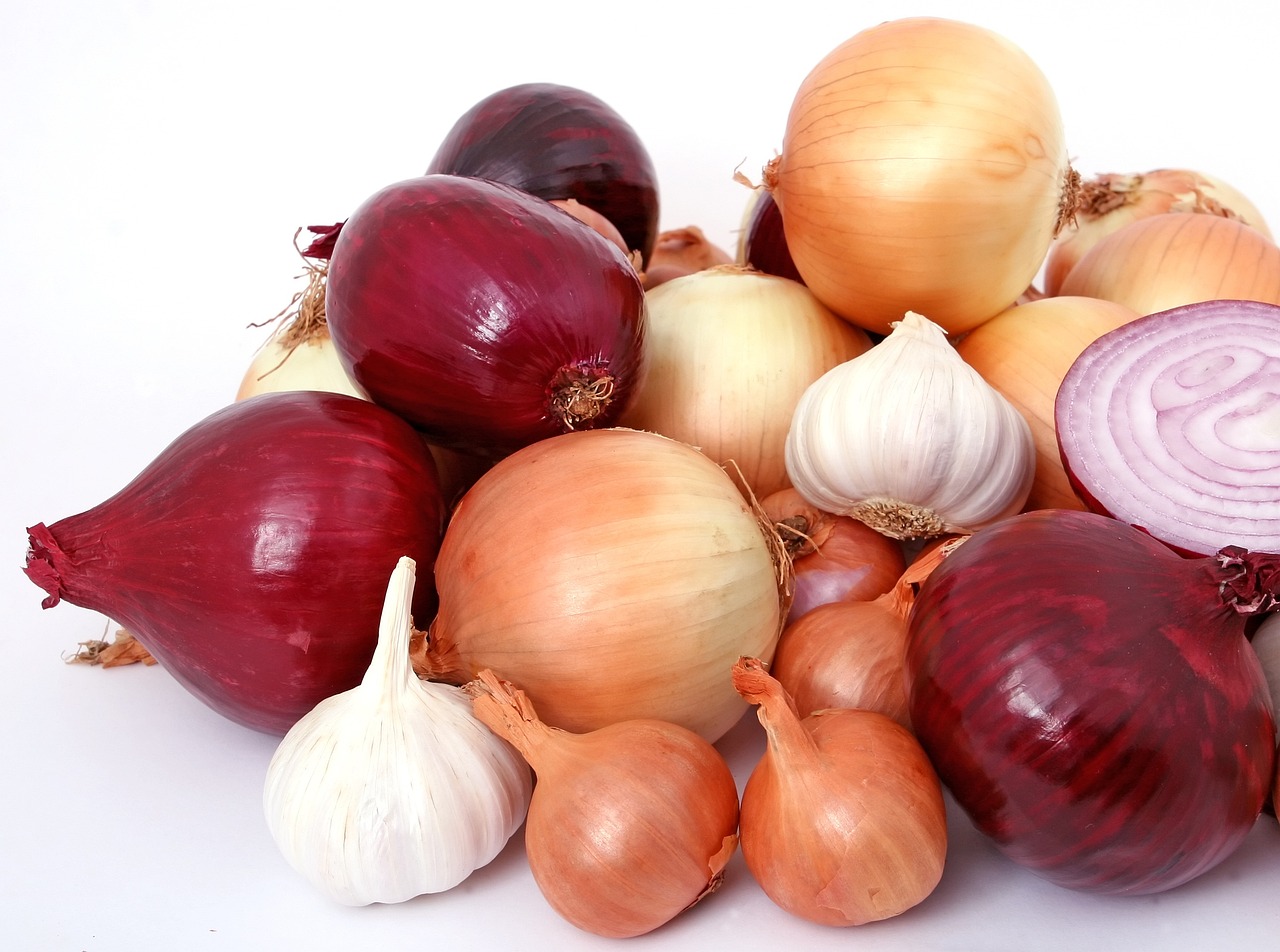Health Benefits of Onions
The onion (Allium sativum) is rich in soluble fiber, vitamins B6 and C, folate, iron, potassium and quercetin. It also contains allium and allyl disulfide, which convert into the powerful phytochemical allicin post ingestion.
Allicin offers cancer prevention, lowers blood pressure levels and helps control diabetes. Other Allium vegetables include leeks, chives and green onions (also known as scallions). All of these are high in quercetin.
Antioxidants
Onions contain flavonoids, which are antioxidants that help prevent cell damage and fight free radicals. Some of the flavonoids in onions include quercetin and anthocyanins, which give the onion its color and flavor. In addition, onions contain alk(en)yl cysteine sulphoxides (ACSOs), which contribute to the vegetable’s heart-healthy benefits.
A study that looked at cancer rates in a group of people found that the more onions and other Allium vegetables people eat, the lower their risk of developing cancer. The researchers believe that this is due to the cancer-fighting compounds that onions and other Allium vegetables contain.
The quercetin in onions can also inhibit the growth of Helicobacter pylori and methicillin-resistant Staphylococcus aureus (MRSA). The best way to get the most antimicrobial properties out of your onions is to eat them raw.
Anti-inflammatory
Onions are a rich source of quercetin, a flavonoid that may have anti-inflammatory properties. In addition to lowering blood pressure, quercetin benefits include reducing histamine levels in the body, improving allergies and helping with asthma symptoms.
Onion nutrition includes vitamins and minerals like vitamin B6 and C, folate and potassium. One medium onion provides up to 20% of the daily value for these nutrients.
Onions are also full of antioxidants, including quercetin. A study found that people who eat foods high in quercetin are less likely to develop certain cancers, including colorectal, laryngeal and ovarian cancers. Onions also help protect against gastrointestinal ulcers by scavenging free radicals and inhibiting the growth of the ulcer-causing microorganism Heliobacter pylori. In addition, onions contain fructooligosaccharides, which act as prebiotics and feed the healthy bacteria in your digestive system.
Lowers blood pressure
Onions are rich in quercetin, a flavonoid antioxidant that helps lower blood pressure levels. Quercetin reduces inflammation, promotes healthy blood sugar levels and aids in the regulation of cholesterol. Onions also contain vitamin C, which supports immune function and is essential for healthy skin.
Onion nutrition includes the sulfur compounds allyl disulfide and cysteine sulfoxides, which have antibacterial properties. They are effective against a range of bacteria, including E.coli, Pseudomonas and Staphylococcus aureus.
Onions are a member of the Allium family, along with garlic and leeks. Studies suggest that Allium vegetables are associated with a decreased risk of certain cancers, particularly those affecting the digestive tract. In a study of Southern European populations, regular consumption of onions and other Allium vegetables was linked to reduced cancer rates.
Lowers risk of cancer
A variety of studies show that regular onion consumption can reduce your risk for cancer. That’s because onions contain quercetin, which is a flavonoid that has been shown to kill cancer cells and inhibit their growth.
Other anti-cancer compounds in onions include phenolic acids and polysaccharides, which have been shown to reduce your risk for stomach, lung, laryngeal, colon, ovarian and prostate cancer. A recent study found that people who regularly eat onions have a lower risk of breast cancer.
Onions are also rich in a type of soluble fiber called oligofructose, which encourages healthy bacteria to grow in your large intestine. That, in turn, helps prevent digestive issues like diarrhea, according to a study published in the journal Clinical Gastroenterology and Hepatology. It’s also been linked to lower levels of oxidative stress, which has been known to cause heart disease and other ailments.
Freshens breath
Onions contain a flavonoid called quercetin, which acts as an antiviral. It has also been found to help inhibit the growth of Helicobacter pylori and Methicillin-resistant Staphylococcus aureus (MRSA).
Eating onions can improve the function of your immune system and prevent the common cold. They are a good source of vitamin C, which helps the body’s white blood cells fight viruses and bacteria.
Adding onions to your diet can improve your breath’s odor by masking the smell of rotting food. You can also eat lemons and drink milk to freshen your breath. The soluble fiber in onions, known as prebiotics, promotes gut bacteria and balances the microbiome. They are also a great source of sulfur, which contributes to glutathione production, a powerful antioxidant that protects eye health and can even reverse age-related macular degeneration.



